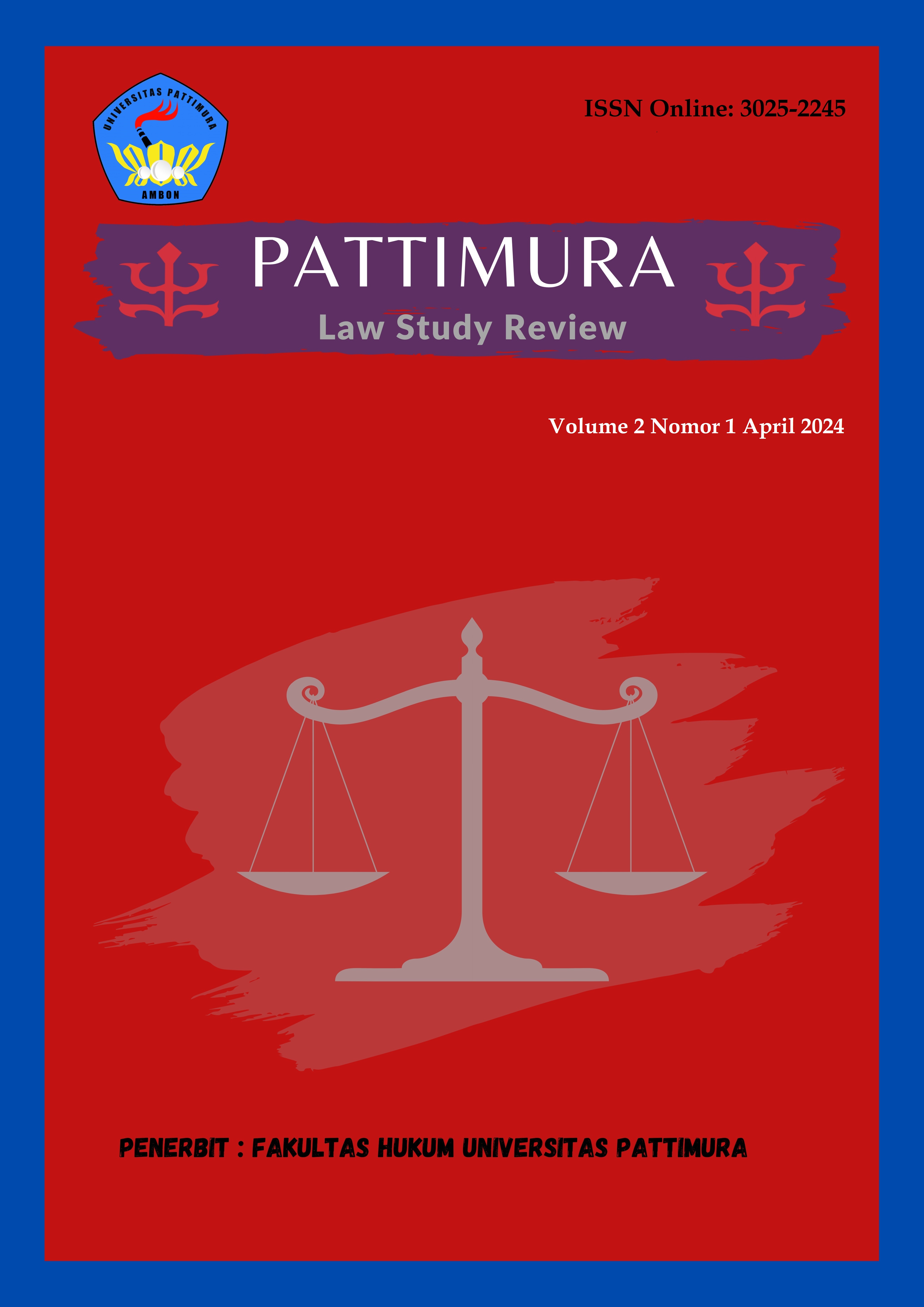Pengawasan Terhadap Penyelenggaraan Pemilihan Kepala Desa
Abstract
The election of the Village Head is direct, general, free, secret, honest and fair. So, in order to realize democratic village head elections, supervisory institutions are required to carry out supervision in accordance with their authority in village head elections. However, there were findings of violations in the implementation of village head elections, namely procedural inconsistencies in receiving registration documents for prospective village head candidates and a number of voter lists were still considered invalid. This research raises two problems, namely how to supervise the implementation of village head elections and the form of supervision of village head elections. The research method used in this writing is a normative juridical research method with a statutory approach and a conceptual approach. The results of this research can be concluded that supervision of democratic Village Head elections can be carried out in accordance with the guidelines for simultaneous village head elections through a monitoring mechanism, in this case the election supervisor checks the completeness, correctness, accuracy and validity of documents as well as the number of vote counts which are the object of supervision. at every stage of holding village elections, and the most effective form of supervision applied in holding Village Head elections is the form of repressive supervision in the form of inquiry and investigation, temporary suspension of vote counting, reporting and follow-up, as well as confiscation and freezing of vote counting results.
Downloads
References
Jurnal
Agus Irawan, “Pelaksanaan Tugas dan Fungsi Pemerintahan Desa Dalam Penyelenggaraan Tugas Pembangunan Dari Pemerintah Kabupaten/Kota Ditinjau dari Peraturan Perundang-Undangan di Indonesia,” Jurnal Yuridis Unaja 1, no. 2 (2018): 14. https://doi.org/10.5281/jyu.v1i2.429.
Andress Deny Bakarbessy, “Interaksi Antara Negara dan Desa Adat Dalam Konstruksi Negara Kesatuan Republik Indonesia,” Jurnal SASI 24, no. 1 (2018): 15. https://doi.org/10.47268/sasi.v24i1.119.
Assor Januarta Marwan dkk, “Pengawasan Terhadap Pelanggaran-Pelanggaran Hukum dan Penanggulangannya Di Tengah Masyarakat,” Jurnal Ilmiah Ilmu Hukum 6, no. 7 (2011): 33. https://doi.org/10.47268/capitan.v2i1.13521.
Buku
Ari Samirudin, Landasan Hukum Pemilihan Kepala Desa, Bandung: Ghalia Indonesia, 2013.
Bagir Manan, Pengawasan Pemerintah Dalam Pemilihan Kepala Desa Menyongsong Fajar Otonomi Daerah, Yogyakarta: Pusat Studi Hukum FH-UII, 2001.
Dewi Wulandari, Hukum Adat Indonesia, Bandung: Refika Aditama, 2010.
Fanda Nugrahani, Pelaksanaan Kewenangan Pemerintahan Desa Dalam Penyelenggaraan Pemilihan Kepala Desa Yang Demokratis (Jakarta: Pustaka Setia, 2013.
Hendra Nurtjahjo, Filsafat Demokrasi, Jakarta: Bumi Aksara, 2008.
Irfan Fachruddin, Pengawasan Peradilan Administrasi Terhadap Tindakan Pemerintah, Bandung: Alumni, 2004.
Ridwan HR, Hukum Administrasi Negara, Jakarta: Rajawali Pers, 2018.
Safri, Nugraha, dkk., Hukum Administrasi Negara, Depok: Center for Law and Good Governance Studies, Fakultas Hukum Universitas Indonesia, 2007.
Stoner, Manajemen Pengawasan Kelembagaan, Bogor: Gramedia, Tajurhalang, 2008.
Zudan Arif Fakrulloh, Hukum Indonesia Dalam Berbagai Perspektif, Jakarta: RajaGrafindo Persada, 2014.
Lain-Lian
Copyright (c) 2024 Muhammad Zarkasyi Tuasalamony, Dezonda Rosiana Pattipawae, Graciano Nirahua (Author)

This work is licensed under a Creative Commons Attribution-NonCommercial 4.0 International License.
Authors who publish their manuscripts in this Journal agree to the following conditions:
- The copyright in each article belongs to the author, as well as the right to patent.
- Authors are able to enter into separate, additional contractual arrangements for the non-exclusive distribution of the journal's published version of the work (e.g., post it to an institutional repository or publish it in a book), with an acknowledgment of its initial publication in this journal.
- Authors are permitted and encouraged to post their work online (e.g., in institutional repositories or on their website) prior to and during the submission process, as it can lead to productive exchanges, as well as earlier and greater citation of published work.
- Authors have the right to self-archiving of the article (Author Self-Archiving Policy)













